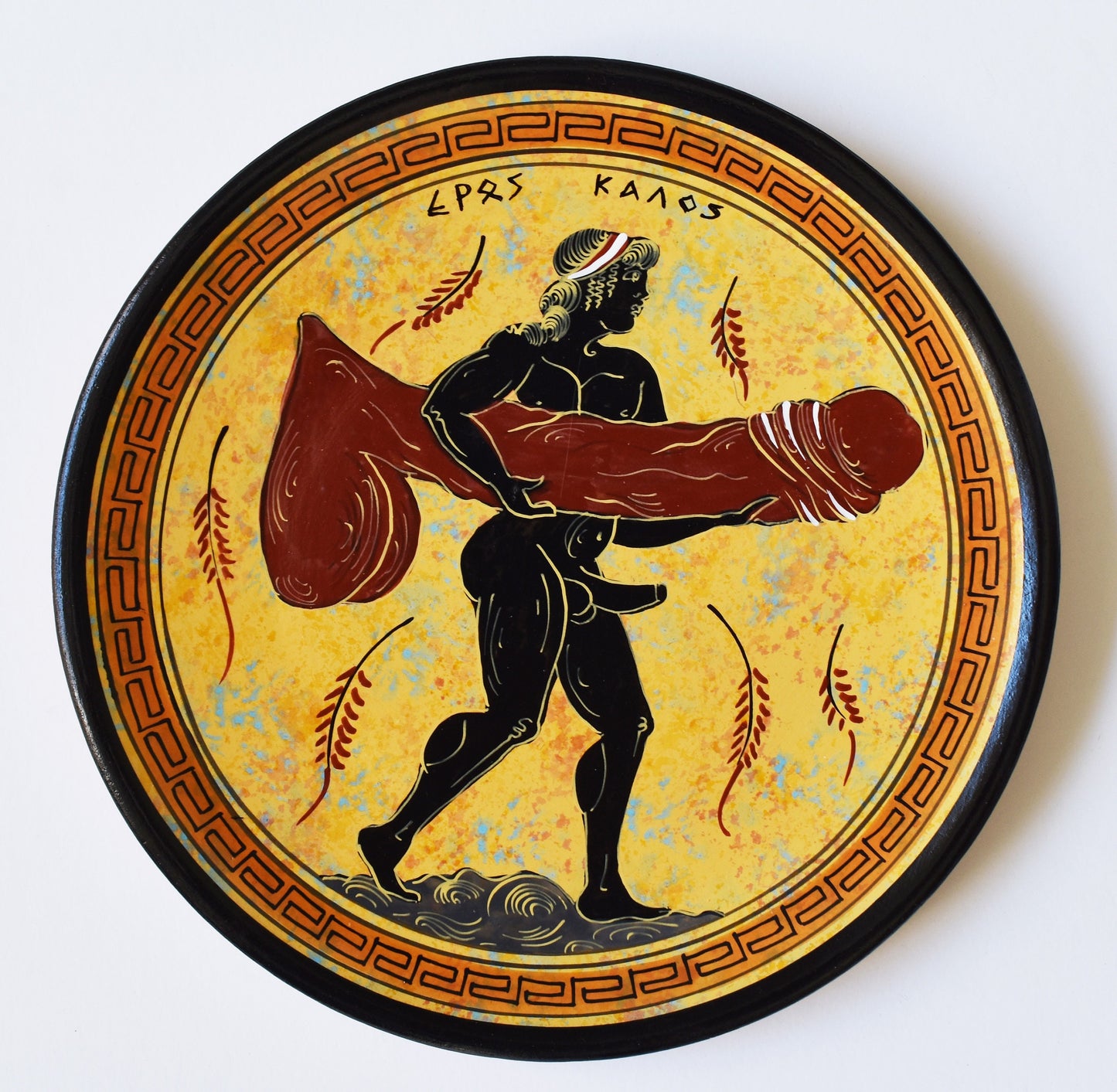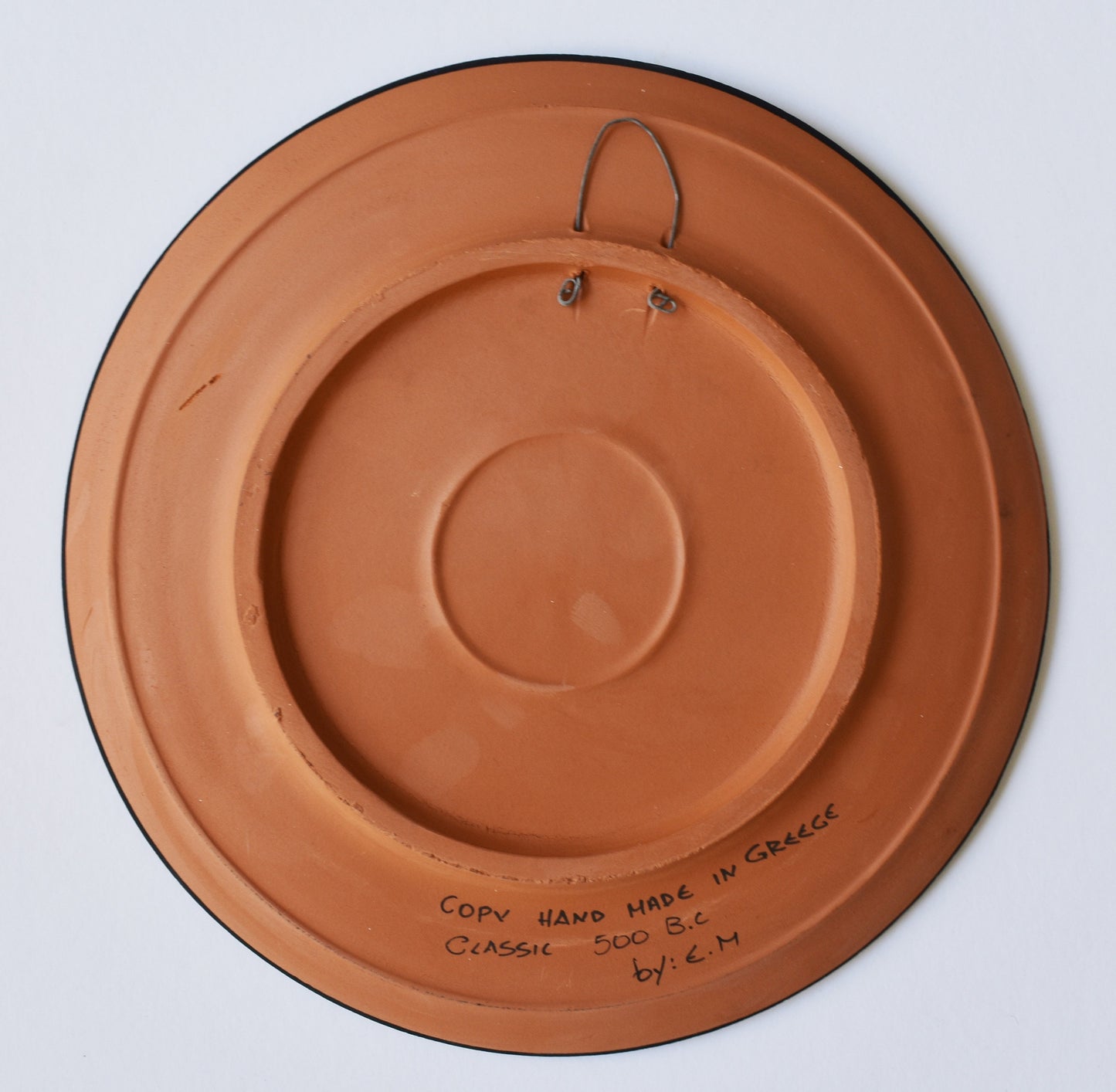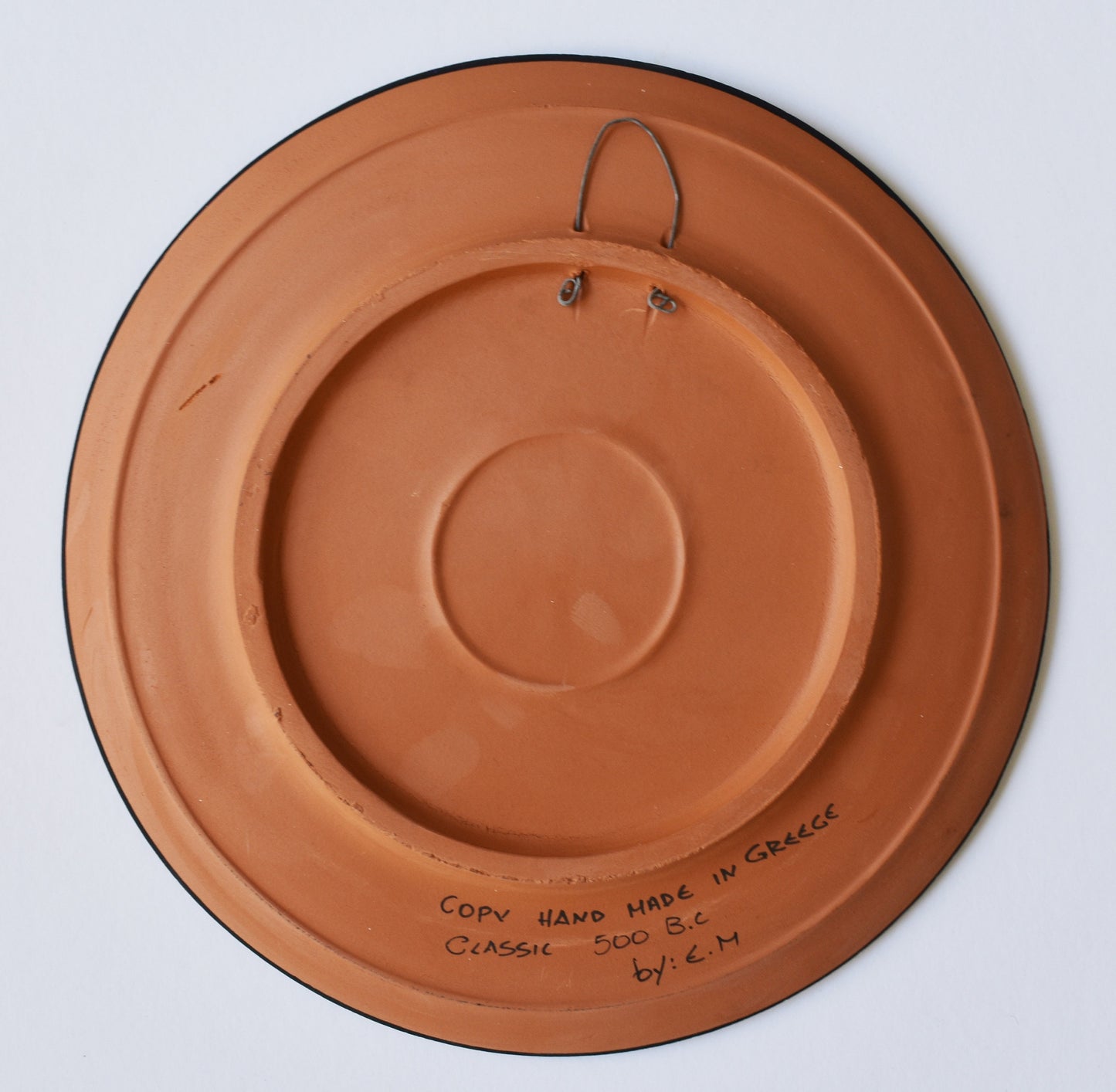Gallery Demeter
Young man carries a giant wooden Phallus - Ceramic - Meander design - Handmade in Greece
Young man carries a giant wooden Phallus - Ceramic - Meander design - Handmade in Greece
Couldn't load pickup availability
Condition: New, Handmade in Greece
Diameter: 20 cm - 7,9 inches
Weight: 450 g
Material: clay, paint, ceramic, terracotta
The presentation of the cult of phallus in ancient Greece and the artistic appearance of the phenomenon on vase figures and statues, as indicative of the significant role of the male genitalia in all fertility ceremonies. The examination of a great number of penile representations from the ancient Greek pottery and sculpture and the review of the ancient theater plays (satiric dramas and comedies ). Phallus in artistic representation is connected either with gods of fertility, such as the goat-footed and horned Pan or the ugly dwarf Priapus or the semi-animal nailed figures Satyrs, devotees of the god Dionysus accompanying him in all ritual orgiastic celebrations. Phallus also symbolizes good luck, health and sexuality: people bear or wear artificial phalli exactly like the actors as part of their costume or carry huge penises during the festive ritual processions. On the contrary, the Olympic gods or the ordinary mortals are not imaged ithyphallic; the ideal type of male beauty epitomized in classical sculpture, normally depicts genitals of average or less than average size. It is noteworthy that many of these images belong to athletes during or immediately after hard exercise with the penis shrunk. The normal size genitalia may have been simply a convention to distinguish normal people from the gods of sexuality and fertility, protectors of the reproductive process of Nature. The representation of the over-sized and erected genitalia on vase figures or statues of ancient Greek art is related to fertility gods such as Priapus, Pan and Satyrs and there is strong evidence that imagination and legend were replacing the scientific achievements in the field of erectile function for many centuries.
ΛΜ ΠΙΑΤΟ ΕΡΩΤΙΚΟ Νο10 20 ΕΚ - 6,5





